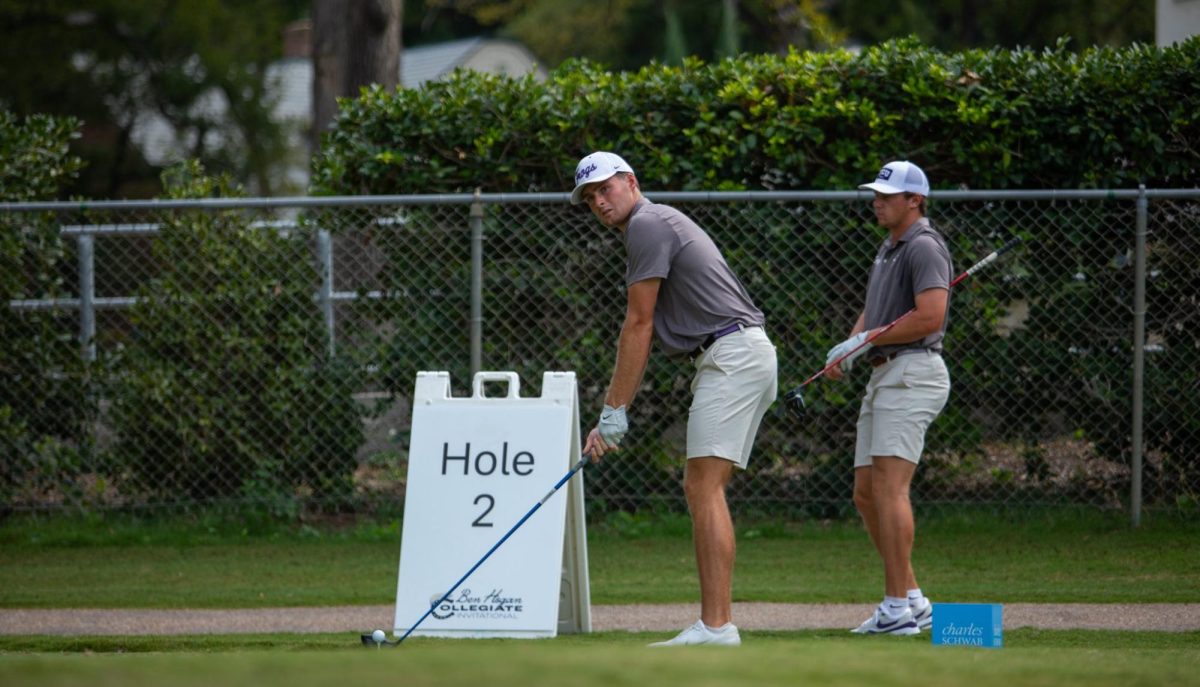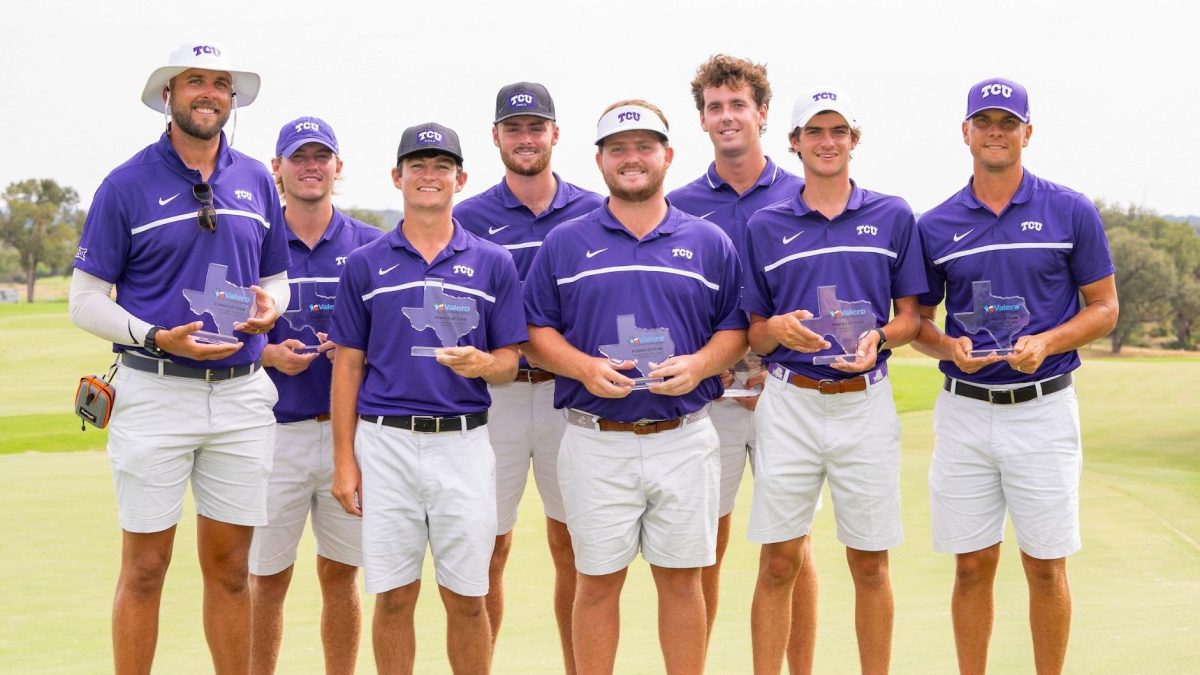The scar on Eli Cole’s leg seems small now.
The strip of slight discoloration just below his knee represents a bigger story, though.
It is what remains of a severely broken leg—a double fracture of the tibia and fibula, the two large bones of which the lower half of a leg is constructed.
Cole, a redshirted senior on the men’s golf team and a native of Beverly Hills, Calif., had returned home for the 2011 Rose Bowl game in Pasadena and decided to play a game of soccer with college-level athletes.
He said he decided not to wear shin guards. It was a decision that ultimately caused the injury.
Dana Cole, Eli’s father, said he had warned his son about playing that day.
“The night before I warned him about playing soccer with college players because he was scheduled to leave a few days later for England and Sweden for golf tournaments there,” Dana Cole said. “I was concerned that he might pull a muscle. Oh, well.”
As soon as he found out his leg was broken, Eli Cole said he told his father to call head coach Bill Montigel.
Dana Cole said he remembered sending Montigel a text message in the ambulance on the way to the hospital.
"'Coach: Eli just broke his leg playing soccer,’" he said, reciting the message, “which essentially meant the end of his collegiate career as he was about to start his senior year.”
Then, Eli Cole said, the calls from his teammates started coming in.
Having already played four years of college golf, he said he had formed a strong bond with his team.
“[My teammates] did a great job of making me feel included,” Eli Cole said. “We’re a really close team.”
Eli Cole said Montigel wanted him to feel included, too.
The coach let him travel with the team to a few tournaments, which he said helped him feel like a part of the team even though he could not play.
“It was too late for [Montigel] to get another player,” Eli Cole said. “I felt bad about that, but it allowed another player to have more of a chance. We didn’t have to share playing time.”
Lessons Learned
Eli Cole said he realized in that time that golf is a strange game—a golfer needs only to tweak pre-existing skills in order to improve.
“If you find something little [in your game] that’s going to give you that advantage, it’s the biggest thing in the world,” he said.
For Eli Cole, that something little was mental toughness.
“I took a lot of time looking at and thinking about things,” he said. “I realized that golf’s a funny game—it’s not like you have to do a whole lot to get to the next level.”
That mindset was not always easy, though, he said.
“There are times that you’re lying in bed wondering if you’ll be back to where you were,” he said.
The Recovery
Eli Cole’s college golf career actually did not end that day, as Dana Cole had suspected.
Even though he had a leg full of titanium—a plate and four screws, to be exact—Eli Cole said assistant strength and conditioning coach Stephen Gephardt helped him rehabilitate immediately.
And Gephardt stuck with it, Eli Cole said.
“They helped [with rehab] not because they had to but because they wanted to,” Eli Cole said, noting that he was not yet on full scholarship when he injured himself.
And, thanks to daily three-to-four-hour rehab sessions specialized for Eli Cole’s injury, the training staff helped facilitate a speedy recovery.
“While his doctor thought he'd be back to golf in about four months, that didn't happen,” Dana Cole said. “It took a long time for the leg to heal and two additional surgeries were needed to remove screws that [were] causing problems for him.”
The last of those surgeries took place when the team traveled to Monterey, Calif., for the Carmel Cup.
Eli Cole healed in about eight months, which he said was sooner than he had expected. Then he hit the course once again.
The speedy recovery did not surprise Dana Cole, though.
“From 7th grade on, Eli was a kid who came home, did his homework and then went to our local golf course to hit balls till 10 p.m.,” he said. “He has an amazing work ethic—learning Japanese and advanced math—not typical studies for student athletes.”
Now one tournament into his fifth season of college golf, Eli Cole said after reflecting, the injury was crucial to his skill development.
“I can’t say definitely that I would’ve gotten better if it weren’t for the injury,” he said.




